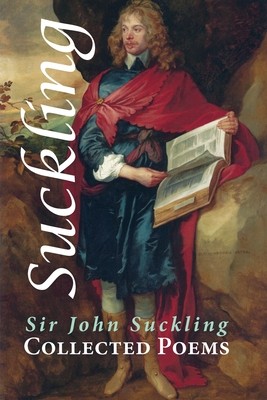
- We will send in 10–14 business days.
- Author: John Suckling
- Publisher: Shearsman Books
- ISBN-10: 1848616120
- ISBN-13: 9781848616127
- Format: 15.2 x 22.9 x 0.7 cm, softcover
- Language: English
- SAVE -10% with code: EXTRA
Reviews
Description
Sir John Suckling (1609-1641) was a significant figure in the group of poets who followed Ben Jonson (often referred to as the "tribe of Ben"), and was a close friend of both Robert Herrick and Thomas Carew. These writers tend to be described as Cavalier poets, having been supporters of King Charles I in the English Civil War and, in some cases, having fought actively with the royalist forces. Suckling raised troops and led them into battle - singularly unsuccessfully: it seems they all ran away at the first sign of violence and thus Suckling could proudly report that not one person under his command had been lost in battle. He had a sense of humour, as did many of his friends in the "Tribe". According to legend, he also invented the game of Cribbage, and was accounted one of the finest card-players of his day.
Suckling was regarded as a "wit" - an educated man about town, able to turn a courteous and amusing phrase, or a poetic tribute, but also a gambler, a womaniser, and a man who dabbled in court politics. This last inclination would lead to him being on the wrong side of history, when his outspoken support for the fallen Earl of Strafford, and participation in a plot to free the Earl from the Tower of London, led to his own condemnation for treason by Parliament. In order to avoid arrest Suckling fled to France but died not long after his arrival, with most reports suggesting that he died of poisoning, either by his own hand or by that of another.
Suckling's witty and well-turned verses are typical of his circle and place him on a par with such contemporary figures as Lovelace. They are still well worth our attention today some 500 years later.
EXTRA 10 % discount with code: EXTRA
The promotion ends in 19d.19:14:44
The discount code is valid when purchasing from 10 €. Discounts do not stack.
- Author: John Suckling
- Publisher: Shearsman Books
- ISBN-10: 1848616120
- ISBN-13: 9781848616127
- Format: 15.2 x 22.9 x 0.7 cm, softcover
- Language: English English
Sir John Suckling (1609-1641) was a significant figure in the group of poets who followed Ben Jonson (often referred to as the "tribe of Ben"), and was a close friend of both Robert Herrick and Thomas Carew. These writers tend to be described as Cavalier poets, having been supporters of King Charles I in the English Civil War and, in some cases, having fought actively with the royalist forces. Suckling raised troops and led them into battle - singularly unsuccessfully: it seems they all ran away at the first sign of violence and thus Suckling could proudly report that not one person under his command had been lost in battle. He had a sense of humour, as did many of his friends in the "Tribe". According to legend, he also invented the game of Cribbage, and was accounted one of the finest card-players of his day.
Suckling was regarded as a "wit" - an educated man about town, able to turn a courteous and amusing phrase, or a poetic tribute, but also a gambler, a womaniser, and a man who dabbled in court politics. This last inclination would lead to him being on the wrong side of history, when his outspoken support for the fallen Earl of Strafford, and participation in a plot to free the Earl from the Tower of London, led to his own condemnation for treason by Parliament. In order to avoid arrest Suckling fled to France but died not long after his arrival, with most reports suggesting that he died of poisoning, either by his own hand or by that of another.
Suckling's witty and well-turned verses are typical of his circle and place him on a par with such contemporary figures as Lovelace. They are still well worth our attention today some 500 years later.


Reviews